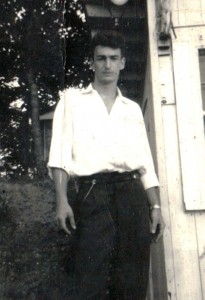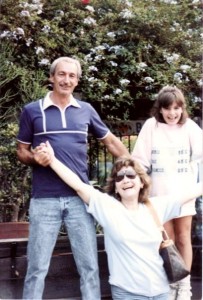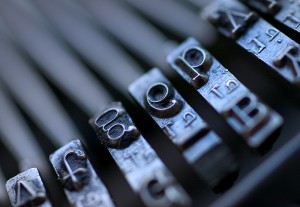Book Preview
A preview of Never Tell Our Business to Strangers:
That’s what I have to remind people whenever I tell them that my father worked for the Mafia and their eyes light up. Because, while my father may have been a freelancer of sorts for the Gambino clan, he was more of a brokester than a mobster.
What is a brokester, you ask? According to William K. Rashbaum of The New York Times, “The impoverished gangster barely eking out a living is so commonplace that mobsters have a word for these poorer men of honor: brokesters.” Sorry to puncture the romance, but my Dad was one of dem guys, with his “one-two-tree” Brooklyn accent and his bicep tattoos.
Of course, I grew up thinking John Mascia was a mere carpet cleaner. But those rough, calloused hands had been put to other, more sinister uses, something I didn’t discover until I was in my twenties. For me, his criminal past first emerged when the FBI came for him, when I was five. I didn’t know we’d been fugitives for five years, living under the surname of an old prison buddy of my father’s. Nor did I know that we’d been living on the lam in southern California suburbia because my father had been in prison for a dozen years before I was born and violated his parole by selling cocaine. Nor did I know then that the reason he had been in jail so long was because he had committed murder, shooting a criminal informant who’d been ratting on his gang.
No, I got John Mascia for the last third of his life, when he tried at his hand at legitimacy, with varying degrees of success. Sometimes, when money was tight, he would sell cocaine, sending kilos and cash to Miami and back via FedEx. We never saved money–my parents’ idea of a bank was a hole cut in the padding below the carpet. We went bankrupt several times, spending up our credit cards with abandon. My father’s business was off the books; my parents knew so little about taxes that when it came time for me to do my own, they both looked at me blankly and suggested an accountant who lived in our building. We never owned a house, never set down financial roots anywhere–money came into my parents’ lives in big, unaccounted-for bundles and flowed between their cigarette-stained fingers like fine Long Island sand.
And I always wondered why. My mother was book-smart and my father was street-smart–hell, he was pocketing $80,000 tax-free in the go-go Eighties, plus whatever he made from the occasional cocaine sale. Where had they gone wrong?
 Later, when I started working for the Times and did some digging into my father’s criminal past, I came across a private investigator who told me about men like my father.
Later, when I started working for the Times and did some digging into my father’s criminal past, I came across a private investigator who told me about men like my father.
“Associates never hold onto their money,” he said. “They think, ‘I can just go out and do this again tomorrow. I don’t have to worry about saving money — my life is a stream of money.’ Most of the guys just burn through it. Also, it’s the lifestyle. There are great moments of exultation–it’s nice when you walk into a restaurant and everybody bows to you. But you get the same effect by handing out fifties, let me tell you.”
I felt hollow. Surely my father was more than a flashy social climber. He’d been a caring, patient father to me.
But maybe his brokester status was a gift. I own one credit card, my paychecks are faithfully deposited into a checking account, and I always pay my taxes. Eventually.

